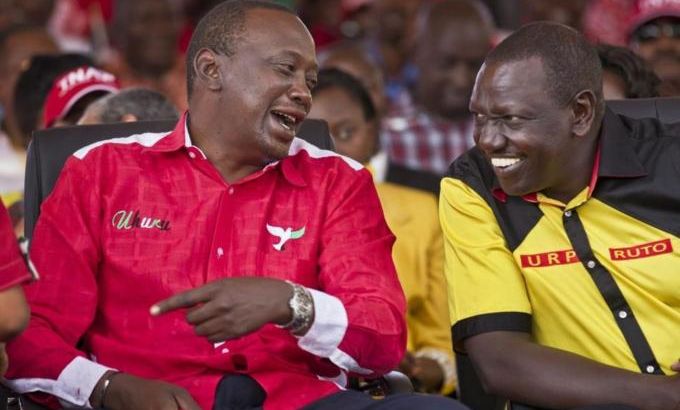
Is Africa snubbing the ICC?
As Kenya votes to withdraw from this ‘court of last resort’, we ask if other African nations will follow suit.
Kenya’s parliament has voted to withdraw from the International Criminal Court (ICC), sending another strong message from the continent against what is perceived to be interference from the West.
The motion was passed after an emergency session of parliament was convened – and the timing could not have been more telling. William Ruto, Kenya’s deputy president, is due to appear before the ICC on September 10, on charges of crimes against humanity, while Uhuru Kenyatta, the Kenyan president, is scheduled to face similar charges in November.
I think it's important to understand what today’s vote is about. This will be a motion from parliament calling on the government to withdraw from the ICC treaty .... But the motion itself wouldn’t actually accomplish that withdrawal. In order for Kenya to withdraw the government itself … will actually have to notify the UN .... So regardless of what happens today Kenya will still stay … and regardless of what happens in the future, the cases that are already existing before the ICC, they’ll go forward. Kenya can't withdraw from its obligations to cooperate in those cases.
They stem from violence that broke out after disputed elections at the end of 2007, which continued into early 2008. At least 1,200 people are reported to have been killed in the unrest, and some 600,000 displaced.
Ruto and Kenyatta had been political opponents but have since resolved their differences, something the ruling party says demonstrates the progress that is being made in the country.
Amnesty International has criticised Kenya’s decision to withdraw from the ICC as the “…latest in a series of disturbing initiatives to undermine the work of the ICC in Kenya and across the continent”.
And the ICC issued a statement, saying the cases against Kenyatta and Ruto would go ahead as planned and that “justice must run its course”. It added: “Witnesses have gone to great lengths to risk their lives and the lives of their relatives to support our investigations and prosecutions.”
The ICC has been surrounded by controversy since it was established in 2002, in The Hague in the Netherlands.
It stands accused of ‘hunting’ Africans because of their race, a flawed investigation process and unacceptably long delays.
The ICC became known as the ‘court of last resort’, seeking justice for the world’s worst crimes: genocide, crimes against humanity and war crimes.
It has been ratified by 121 countries, including 34 in Africa, but significantly not by the US.
It has issued arrest warrants for 21 people and summonses for nine others, all of them in Africa. Proceedings against 23 people are continuing.
But it has secured only one conviction; that was against Thomas Lubanga in March 2012. He was a militia leader in the Democratic Republic of Congo, and was sentenced to 14 years for committing war crimes and recruiting child soldiers.
There are many other high profile cases ongoing. Laurent Gbagbo, the former leader of the Ivory Coast, is facing charges of crimes against humanity, including murder and rape. Omar al-Bashir, the Sudanese president, is the first sitting head of state to be issued with an arrest warrant by the ICC. He was charged with genocide, war crimes and crimes against humanity for violence in Darfur. Joseph Kony, the leader of the Lord’s Resistance Army in Uganda, is accused of ordering the abduction of thousands of children to become soldiers and sex slaves. And Saif al Islam Gaddafi, the son of the former Libyan leader Muammar Gaddafi, is wanted for his role in attacks against civilians during the 2011 uprising.
But as the ICC struggles to fulfil its mandate, what impact will Kenya’s decision to withdraw support have on the court? And will the snub embolden other African nations to follow suit?
To discuss this, Inside Story, with presenter Jane Dutton, is joined by guests: Peter Kagwanja, the chief executive of the Africa Policy Institute and a former adviser to the Kenyan government; Elizabeth Evenson, a researcher for the International Justice Program at Human Rights Watch and an ICC specialist; and Mariana Goetz, an international lawyer with Redress, a rights group that helps torture survivors obtain justice.
|
“The problem is actually the question of having the head of state and his deputy outside the country, facing trial for over 400 days. The people of Kenya [are] asking ‘where will the country be when the head of state and his deputy are out [of the country]?’ In other words the country will be decapitated completely….” Peter Kagwanja, the chief executive of the Africa Policy Institute |